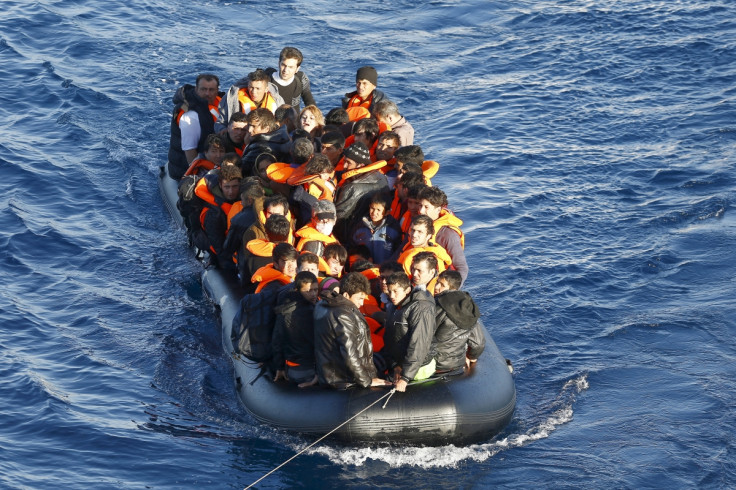UK to deploy Royal Navy ship to Aegean Sea to help Nato stop migrant smugglers

The UK will deploy patrol boats including a Royal Navy ship to the Greek coast as it teams up with NATO forces to stop another wave of migrants from entering the European Union through Turkey.
Only hours after another vessel carrying migrants sank killing 25 people, the UK pledged it would send to the Aegean Sea the amphibious landing RFA Mounts Bay to join the NATO deployment which will include vessels from Germany, Canada and Greece.
The vessel will help spot smugglers taking migrants to Greece and allow information to be passed to Turkish coastguards who can intercept them. Also joining the fleet will be two Border Force cutters as well as the chartered civilian vessel VOS Grace, which is already in the Aegean.
It comes as David Cameron meets with European leaders in Brussels for urgent talks with Turkey and leaders of the EU to tackle the crisis with the 28 member states expected to ask Ankara to take back thousands of migrants who do not qualify for asylum.
A draft summit document ahead of the talks outlines how the UK will have to commit with other EU countries to "use all available means" to stem the migrants with The Times reporting how the document stated: "Irregular flows of migrants along the western Balkans route are coming to an end; this route is now closed."
There were warnings of a humanitarian crisis in northern Greece where 14,000 people are trapped after Macedonia sealed the border. The EU's chief immigration policy maker Dmitris Avramopolous said 100,000 migrants would make it to Greece this month alone.
The talks in Brussels will hear of a radical proposal to overhaul the EU's asylum system with a view to centralising control of asylum claims.
This would mean that instead of the current "Dublin regulation", where refugees have to claim asylum at the first EU country they enter, all claims could be shifted to the European Asylum Support Office, according to the Financial Times.
The Dublin rule means those countries at the edges of the EU bear the brunt of the waves of people coming in. However this policy is in disarray after the German chancellor Angela Merkel effectively waived it, which led to thousands seeking out Germany for refuge.
The new asylum office would effectively be a federal agency but EU critics are likely to see this as a shift of powers towards Brussels, although the UK would not be forced to join the system.
© Copyright IBTimes 2024. All rights reserved.






